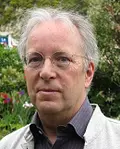Cooperation Project "Local Politicization of Global Norms"
Duration
2014
- 2017
Funding
Thüringer Ministerium für Bildung, Wissenschaft und Kultur (TMBWK) :
490 000 Euro
Project management
![Prof. Dr. André Brodocz [Translate to English:] Prof. Dr. Andrè Brodocz](/fileadmin/_processed_/7/f/csm_brodocz_andre_0b233ee677.webp)



The project examines the conditions under which egalitarian norms with a global claim to validity (such as human rights, sustainability, rule of law) actually find acceptance. For the very reason that such norms initially disregard the respective context, it is unlikely that their addressees even consider them plausible. In doing so, we focus on the role of protest movements on the one hand; on the other hand, we ask in what way egalitarian norms, which have been institutionalized by law, are actually used locally. To this end, the project takes up sociological and ethnological concepts that think of such forms of order formation from the micro-processes. The central question is which local processes give plausibility to certain types of normative generalization (and not to others); and which mechanisms make the respective circumstances immune to criticism.
The subprojects deal with the Brazilian landless movement (Bunk), women's rights NGOs in Tamil Nadu (Vogl), property rights of women in West Bengal (Mondal), the social-philosophical comparison of affirmative action programs in Germany, India and the USA (Lindner), the political theory of property rights (Gümplóva), and the development of a sociological approach that helps to address the central problem of local evidence (Pettenkofer).
